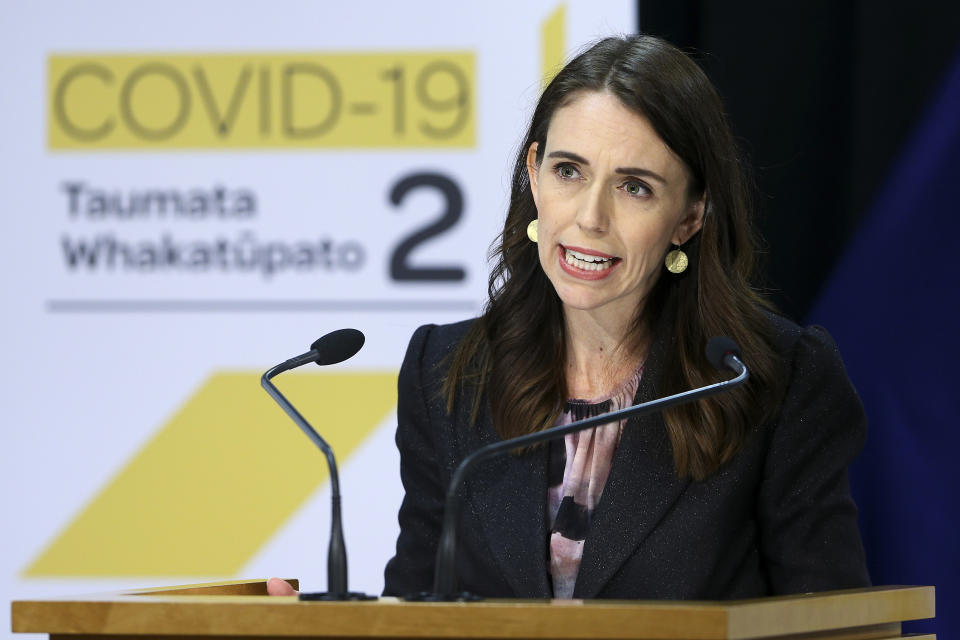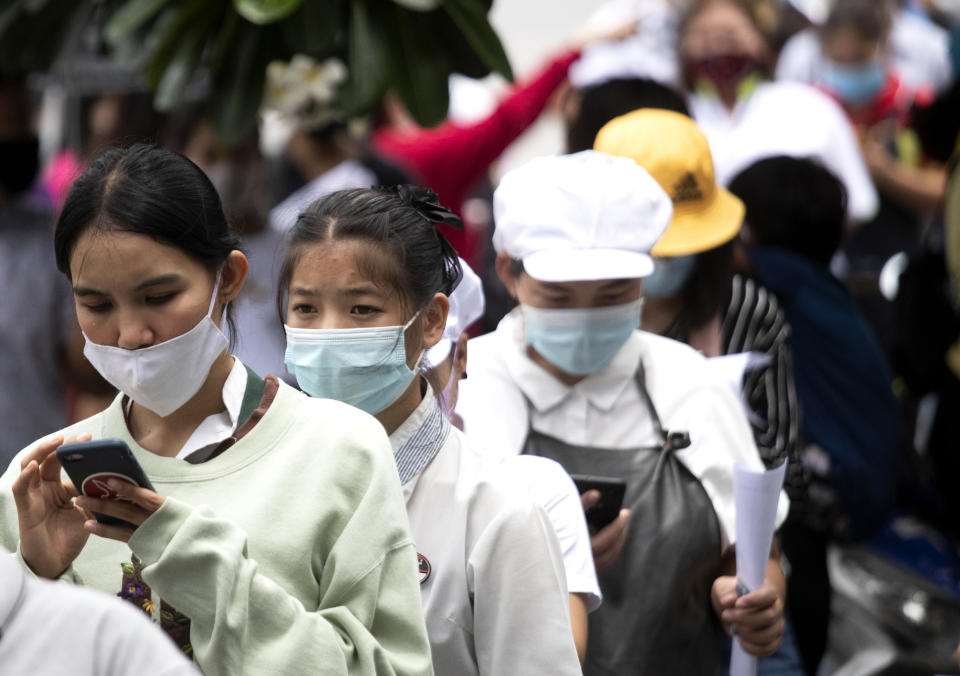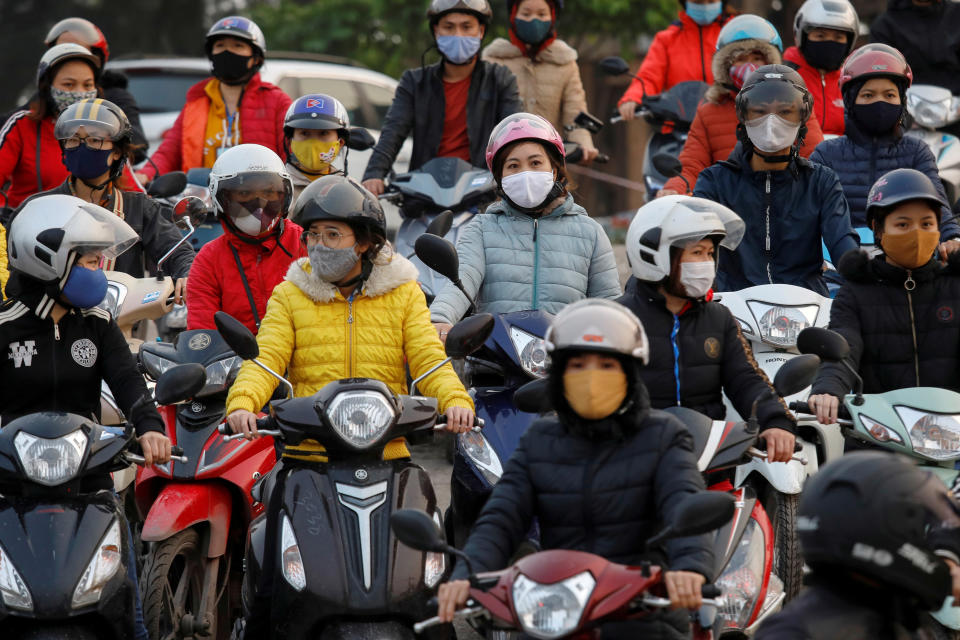Five countries that prevented large-scale coronavirus outbreaks, according to WHO

The World Health Organization (WHO) has praised five countries it says worked hard to prevent large-scale coronavirus outbreaks.
In a media briefing on Monday, director-general Dr Tedros Adhanom Ghebreyesus named five nations that followed social distancing advice to effectively stop the spread of COVID-19.
Dr Tedros said almost 16 million cases of coronavirus and 640,000 deaths have been reported.
And he issued a warning that the “pandemic continues to accelerate”, pointing out that the number of cases has doubled in the past six weeks.
He said the “basic measures needed to suppress transmission and save lives” have not changed.
“Find, isolate, test and care for cases; and trace and quarantine their contacts,” he said.
“Keep your distance from others, clean your hands, avoid crowded and enclosed areas, and wear a mask where recommended.
“Where these measures are followed, cases go down. Where they’re not, cases go up.”
He praised five countries who “followed this advice carefully and consistently” to prevent large-scale outbreaks.
CAMBODIA
According to Johns Hopkins University, there have been 225 confirmed cases of coronavirus and zero deaths in Cambodia.
While some health experts have questioned its reported zero death rate, Cambodia has helped keep coronavirus at bay because of a number of factors.
Firstly, many people in Cambodia already wore face masks before the coronavirus pandemic, and the custom of shaking hands is not common.
Watch the video below
Cambodia has also benefited from the early lockdowns introduced by neighbouring Vietnam and Thailand.
Cambodia didn’t introduce strict restrictions until the middle of March, closing schools and nightclubs, but its experience with battling diseases such as malaria has boosted its response.
NEW ZEALAND
According to Johns Hopkins University, there have been 1,556 confirmed cases and 22 deaths in New Zealand.
Hailed for its response to COVID-19, it closed its borders to non-residents on 19 March.
Since 10 April, all New Zealand citizens returning from overseas have had to undergo managed isolation for two weeks.

The country went into a nationwide lockdown on 25 March, before easing remaining restrictions – apart from border controls – on 8 June.
Prime minister Jacinda Ardern has been heavily praised for her cool-headed approach to tackling the spread of coronavirus.
While it has seen a number of clusters since its lockdown was eased, New Zealand is acclaimed as one of the world’s coronavirus success stories.
RWANDA
According to Johns Hopkins University, there have been 1,821 confirmed cases and five deaths in Rwanda.
The country has been widely praised for its approach – people can be tested randomly while walking down the street, and anyone who tests positive is immediately put into quarantine at a COVID-19 clinic.

The country has used “pool testing” to examine nasal swabs from 20 to 25 people in one go, testing many more samples at once. If there is a positive result, all the swabs in that pool are tested individually to identify the infected person.
Rwanda’s lockdown was announced on 21 March and workers were sent home and borders closed.
Its police force delivered messages by drone to people on how to tackle the spread of coronavirus.
THAILAND
According to Johns Hopkins University, there have been 3,295 confirmed cases and 58 deaths in Thailand.
It had its first reported case of COVID-19 on 13 January, making it the first country outside China to confirm the spread of coronavirus.
Thailand declared a state of emergency from 26 March and a curfew was introduced on 3 April.

All international flights were suspended from 4 April.
The rate of new cases fell throughout April and reached almost zero in mid-May, allowing restrictions to be eased, although it has since tightened its borders over fears of a second wave.
Thailand plans to begin human trials in November for a potential COVID-19 vaccine that could be available by the end of next year.
VIETNAM
According to Johns Hopkins University, there have been 420 cases and zero deaths in Vietnam.
It has been widely praised for its coronavirus response – it began closing schools in late January and introduced a widespread and sustained testing programme. It suspended all foreigners from entering its borders from 22 March.

Scottish pilot Stephen Cameron spent more than two months on a ventilator in a Vietnamese hospital, and was known as the country’s sickest coronavirus patient. He is now being treated in University Hospital Wishaw near Glasgow.
Vietnam had gone 99 days in a row without a new local infection until a 57-year-old tested positive for COVID-19 on Saturday.
On Monday, Vietnam announced it was evacuating 80,000 people from the city of Da Nang after 11 residents tested positive for coronavirus.
Coronavirus: what happened today
Click here to sign up to the latest news and information with our daily Catch-up newsletter

 Yahoo Movies
Yahoo Movies 


